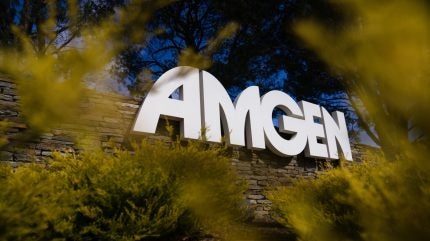
Amgen’s Nplate (romiplostim) has demonstrated efficacy in treating thrombocytopaenia among gastrointestinal (GI) cancer patients, as Phase III RECITE results are presented at ASCO 2025.
In the Phase III RECITE trial (NCT03362177), Nplate limited the modification of immunosuppressive therapies while improving platelet response compared to placebo, as per the abstract unveiled at the 2025 American Society of Clinical Oncology (ASCO) conference in Chicago, Illinois. The meeting is taking place from 30 May to 3 June.

Discover B2B Marketing That Performs
Combine business intelligence and editorial excellence to reach engaged professionals across 36 leading media platforms.
The RECITE trial enrolled 165 patients from 14 countries with colorectal, gastroesophageal, or pancreatic cancer who received oxaliplatin-based chemotherapy, resulting in persistent thrombocytopaenia. Participants were randomised 2:1 to be administered Nplate or placebo for three chemotherapy cycles; intravenous Nplate started at 2 μg/kg and was raised weekly by 1 μg/kg up to 10 μg/kg.
The study found 84% of Nplate-treated patients achieved the trial’s primary endpoint, which evaluated the need for dose modification of myeloimmunosuppressive agents, compared to 36% of those given a placebo. Nplate was well tolerated, eliciting treatment-related adverse events (TEAEs) among 12% of patients versus 7% on placebo, but no TEAEs considered serious or leading to discontinuation were observed in either group.
Nplate was first approved by the US Food and Drug Administration (FDA) in August 2008 to treat thrombocytopaenia in adults with chronic immune thrombocytopaenic purpura (ITP). It was later approved in December 2018 for paediatric patients with IPT unresponsive to other treatments. Then, in October 2019, the drug’s adult indication was expanded to cover newly diagnosed ITP patients who were also unresponsive to alternative treatments.
GlobalData predicts Nplate will generate total global sales of $1.5bn in 2025. Amgen is scheduled to lose its exclusive US rights to the drug’s formulation on 12 February 2028. Annual sales are projected to fall to $1.1bn by 2031.

US Tariffs are shifting - will you react or anticipate?
Don’t let policy changes catch you off guard. Stay proactive with real-time data and expert analysis.
By GlobalDataGlobalData is the parent company of Pharmaceutical Technology.
The therapy also significantly increased patients’ platelet nadirs, reaching a median low of 87×109/L versus 58×109/L for placebo. Nplate- and placebo-treated patients achieved platelet responses at 97% and 77%, respectively, with respective median times to first response of 1.1 weeks and 2.1 weeks.
The abstract authors described these results as indicative of Nplate as a “potentially practice-changing” therapy for treating thrombocytopaenia, a routine and serious condition met by patients on chemotherapy. Chemotherapy-induced thrombocytopaenia is a common side effect of chemotherapeutic regimens, which lower the platelet count in the blood, weaken blood clotting, and raise the risk of internal bleeding.


